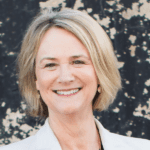
[Editor’s Note: In honor of PR Council’s (PRC) 25th anniversary, we spoke with incoming board chair Ellen Ryan Mardiks, chairman, Golin, and Kim Sample, PRC’s president. The conversation was lightly edited for space and content.]
PRNEWS: What are PR agency-members telling you? What are their concerns?

Ellen Ryan Mardiks: The first one is really more of an opportunity…It is [maintaining] the momentum that our industry has had over the last couple of years, which has fueled a greater understanding of what we do for those we serve….We have to keep our foot on the gas.
PRNEWS: And challenges?
Ryan Mardiks: This truly is a challenge and will impact momentum. And that is our talent issue. That's not a surprise…but it’s a very genuine issue.
As an industry, we're faced with the same issues [as other sectors]…around the Great Resignation and…what it means to work for an agency when you're working in your home office.
And there’s the need to diversify. Again, because I can't help it, but I see it as an opportunity.
The diversity that we're looking for is not diversity in the standard way people are talking about it, though that is absolutely part of what we're trying to do.
[PRC president] Kim [Sample] has CEOs working with us to ensure that PR agencies have what they need to attract and retain diverse employees. That's really important.
But we also need diversity of background and diversity of thought.
We need all kinds of people, not just PR people…We need all kinds of talent. And that's awesome.
But, we have to go get them. We have to know where to go get them. And we have to make sure that they thrive in an agency environment.
PRNEWS: When you say agencies need more than just PR pros, what people do you mean?
Ryan Mardiks: Well, one category is data and analytics…we have to find and bring them to PR agencies.
PRNEWS: Unfortunately, in the public’s mind, there’s not necessarily a connection between data and working in PR. What’s the PRC doing to change this?
Ryan Mardiks: You’re right. So, we've got to make sure that our industry is not under a bushel. We need to let [data analysts] know about opportunities at PR agencies.
We actually have a nascent program [to do this]…we're calling it the PR Pivoter program…If it gets the kind of traction it deserves, it will allow us to get out there, find those people, tell them…what it means to take their craft and apply it in a PR agency.
Kim Sample: It's funny, because it's [PRC’s] 25th anniversary and I’ve gone through files from the beginning of the association. And in the first annual report, the chair’s letter said the PRC must change negative stereotypes and misrepresentations of the industry.

And I think we have. But even my adult children don’t know what the industry looks like today and I’ve worked in it for 25 years. So, we have to get the word out [about what PR is now] in really smart ways that help us attract the talent we need.
Ryan Mardiks: This is why it's kind of a good problem. We wouldn't need talent if we weren't doing well as an industry, but [we need additional talent] or we’ll lose that momentum.
PRNEWS: OK, so you populate PR agencies with data analysts. Does that absolve other communicators from measuring and working with data?
Ryan Mardiks: No…[all PR pros] need a working knowledge…of the different components of what we do. And [data and analytics] is certainly one of them….
PRNEWS: Can academia help?
Ryan Mardiks: Yes…by growing [PR-minded data analysts] from the start. So, they might need to attract different people to their programs to begin with, which means they need to position them differently. They could forge partnerships with other departments and schools at their universities for cross-pollination and sharing. That could be very, very fruitful.
PRNEWS: One of the hot PR topics is generative AI. Will PR pros need to disclose that AI wrote campaign copy? Will PRC issue AI-themed ethics guidelines?
Sample: We've always focused on ethics and standards….We just did a session on chatGPT, which was highly attended…and we're following up with a session with legal counsel.
And we're going to be talking with the board…about when do we issue guidance and standards on using generative AI.
We're saying to members, ‘Play with it. [AI is] a great thing if it gets rid of some of the mundane tasks’… But [eventually] we will be at a place where we're going to require disclosure.
Ryan Mardiks: You know about paid spokespeople needing to disclose. All that is transparency. It's not the exact same thing [as AI disclosure], but it's adjacent…this is content meant to communicate not just facts and figures, but ideas and messaging and values…so, we're going to have to be thoughtful about it…we will need to have industry standards.
But we need to lead versus the other way around. So…deploy it, smartly and thoughtfully and hopefully…we don't lose the intellectual art that needs to be deployed in writing. If we lose that, all it becomes is prompts. We will have lost something important for consumers.
Seth Arenstein is editor of PRNEWS and Crisis Insider. Follow him: @skarenstein
